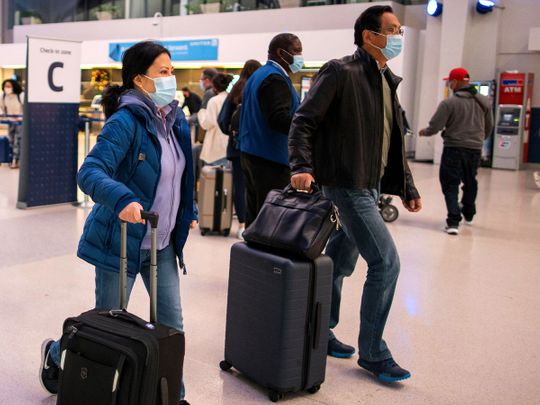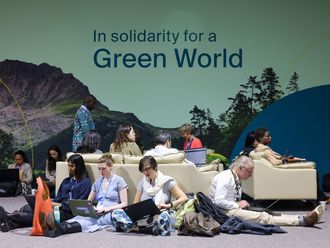
Christmas is around the corner. And the New Year too. This is travel season, and I’m travelling to India. A journey after two years. That’s true for many people whose travel plans have been put on hold due to COVID-19.
Call it revenge travel, as in revenge tourism in the aftermath of the global pandemic. Most people are headed for their home countries to share the festive joy with their family and friends. Besides Christmas and New Year, this is also the season of weddings and get-togethers.
Leave requests are filed, tickets are booked, and the countdown had begun. That’s when Omicron, the new coronavirus variant, announced its arrival to the world. What followed was panic, sheer panic. My anxiety was not fuelled by the threat posed by the mutant strain but at the thought that the travel plans could evaporate.
How Omicron impacts travel
When you haven’t travelled for two years or haven’t seen your loved ones for two years, such panic is bound to happen. Will the flights be scrapped? Will the borders remain open? Will I be able to return after the leave? Questions, numerous questions, race through my mind.
Unfortunately, there are no answers. On current evidence, there’s no reason to worry. The scant data on Omicron shows the infections so far have been mild, although the transmission rate in the Gauteng province of South Africa has been high. Is it high enough to ground the flights? The World Health Organisation doesn’t seem to think so, and it has been critical of the move to ban flights from countries in southern Africa.
The WHO’s stance may have stemmed from the thought that the flight ban is akin to closing the stable door after the horse has bolted. All the cases that have surfaced worldwide must have been the result of infections from at least a week ago. Now, these cases will lead to local transmission. So what’s the point in banning international flights? Well, the WHO has a valid point.
More precautions and delays ahead
That gives me enough reason to be optimistic that the flights won’t be disrupted. But precautions will be ramped up at airports and other ports of entry. So brace for inordinate delays, and take adequate precautions throughout the trip.
Precautions, precautions, precautions. Nothing is too much, although experts dismiss the need to wear N95 masks; they say KN95 masks are good enough. Hand-washing or sanitising and social distancing are very effective in keeping the virus at bay. Social distancing may not be feasible on aircraft, but I will adhere to it whenever possible.
Read more
- COVID-19: How Omicron will affect me and my daily life
- COVID-19: Why the world is worried about new variant Omicron
- Omicron could knock a fragile economic recovery off track
- Omicron Variant: Seven ways India can keep a step ahead
- Over-60s, vulnerable should postpone travel due to Omicron COVID-19 variant: WHO
The threat is not just from Omicron. Delta too is still around. So travel if you must, but be prudent with your visits. I certainly won’t be calling on the elderly, or friends and relatives with health conditions. That would be irresponsible. I might be alright, but I don’t want to carry germs that would put their lives in danger.
I’m going shopping next week for some gifts. Bags are to be packed. Then the PCR test followed by uploading the result and numerous forms to fill up. It’s a pain. But that pain is worth it when you travel after two years.
I’m leaving on a jet plane. Don’t know when I’ll be back again, John Denver sang. I’ll be back in the New Year. What about you?








